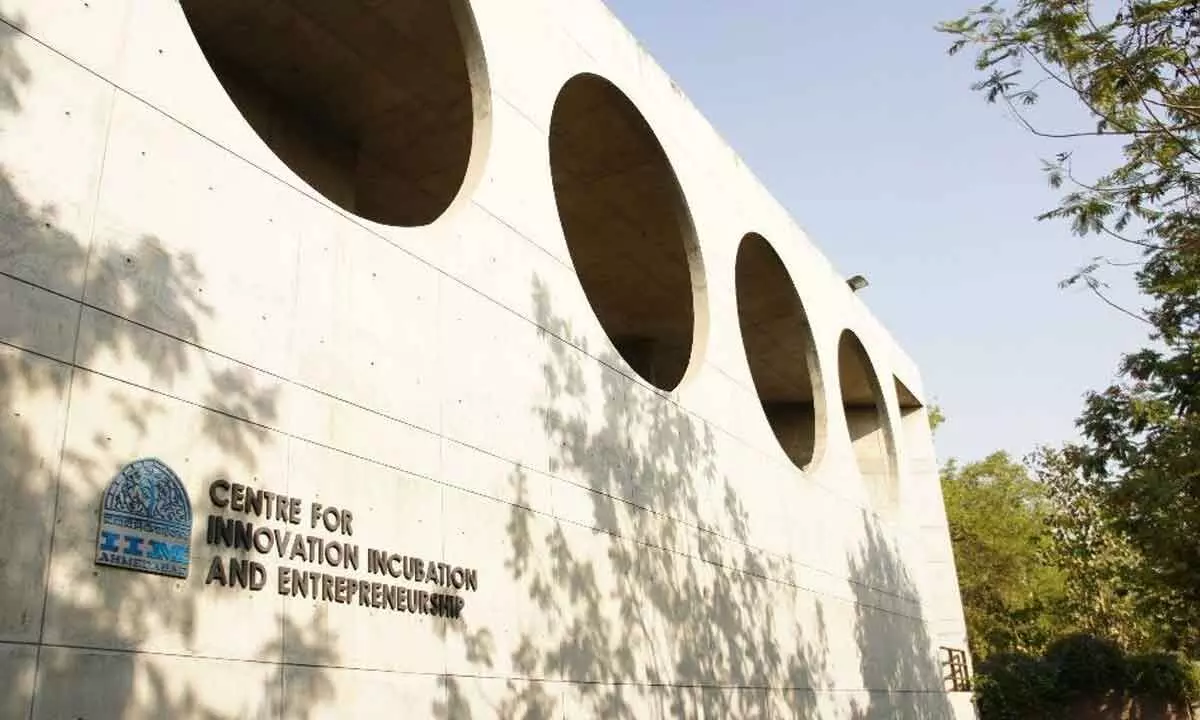CIIE.CO accelerates 1,000 startups, invests in 200
In terms of the numbers, CIIE.CO, an accelerator and incubation Centre, based out of IIM, Ahmedabad, has, through its different entrepreneurship development programs, accelerated more than 1,000 startups so far.
image for illustrative purpose

Mumbai: In terms of the numbers, CIIE.CO, an accelerator and incubation Centre, based out of IIM, Ahmedabad, has, through its different entrepreneurship development programs, accelerated more than 1,000 startups so far. And out of that, there are more than 200 startups where it has basically provided equity investments.
Interestingly, 30 of those startups exist profitably. Venture Capital funds Bharat Innovation Fund (BIF) and Bharat Inclusion Seed Fund (BISF) are also autonomous entities that operate under the aegis of CIIE.CO. CIIE.CO has deployed capital and previously exited from its fund Infuse Venture, also India's first Clean Energy & Sustainability fund.
Besides, for its already existing VC - Infused Venture fund, it has deployed capital and is in the process of exiting from the startups.
That was India's first fund focused on sustainability. Today, the centre works with startups at an early stage, be it pre-seed or seed stage, which might be an up to the scale up stage. It provides the startups funding in the form of government grants, pre-seed, seed and series, an investment which could start from around 10 to 15 lakh of grand capital up to $5 million investment.
Headquartered at IIM Ahmedabad, almost 35 to 40 people work out of this office and rest operating from different corners of the country. The Centre has similar incubation centres with co-working spaces in Jaipur, and one facility in Indore. Moreover, it is doing some interesting work in agriculture in Guwahati. While CIIE.CO runs its operations from IIMA, its mandate is not only working with IIMA students or IIM related startups, but it largely works with budding entrepreneurs from across the country.
Talking to Bizz Buzz, Vipul Patel, Partner at CIIE.CO, says, "Wherever there is an interesting opportunity or interesting entrepreneurs who are trying to build some interesting product across sectors, we basically work with them."
We are also now looking at some of the sectors like web 3.0, alternate meat, and there is something we are trying to do in the robotic side of it, he said.
How do you shortlist the startups?
In reply, Patel said that at CIIE.CO, we run different kinds of programs. We run a lot of sector focus as well as sector agnostic acceleration programs. The process starts with a call for application.
Let's say for example, if we are looking for a robotics company, or agritech, so, we invite applications for the companies looking for equity in the sector. We say, these are some of the sub-sectors we are looking to invest in. Usually, whenever we do a sector-focused program, we receive anything between 300 to 500 applications, when we do any sector agnostic program like large scale without any secretarial constraints, then we receive about around 10,000 applications.
After startups apply and we have the applications, we do a screening with an internal team. For example, if we are doing a sector-focused program, we try to shortlist at least 50 companies out of the 500 applications. Then with those 50, we also try to evaluate those applications with industry experts. So we have mentors, and advisors, where we also take their views on the application and create a detailed analysis about all the companies and out of that lot, then we create a committee where these companies are presenting and we select the top 10 companies. Then, as promised we work with these top 10 companies for about six to eight months.
Should the launch of new cohorts be also focused in the regional markets?
We, Patel said, are doing the work in the regional markets, as I mentioned, we have an office here (Ahmedabad), we have one in Jaipur. See, when we talk about the Indian startup ecosystem, we talk about the bigger cities like Bangalore or Hyderabad, right. But at the same time, what we have witnessed is that smaller tier 2, tier 3 cities also have the same potential. Right? So in order to actually go deeper into those cities to create an ecosystem because maybe there can be bigger ecosystems there, that is the main goal. So, in order to do that, we will work there, and create an ecosystem in India and overall, encourage more and more people to create something of their own and for the greater benefit of Bharat. We have actually witnessed some very interesting examples like Razorpay coming out from Jaipur as their home city. Similarly, when we talk about Ahmedabad, we can talk about the likes of Lendingkart or Beardo's of the world, and as that happened, everyone started to say it's not only big cities that are producing entrepreneurs. So, similar opportunities are there in tier 2, tier 3 segments, provided that we work in the right ecosystem, and if the ecosystem does not exist, then we can Build the ecosystem and catch these entrepreneurs early in their journey.

